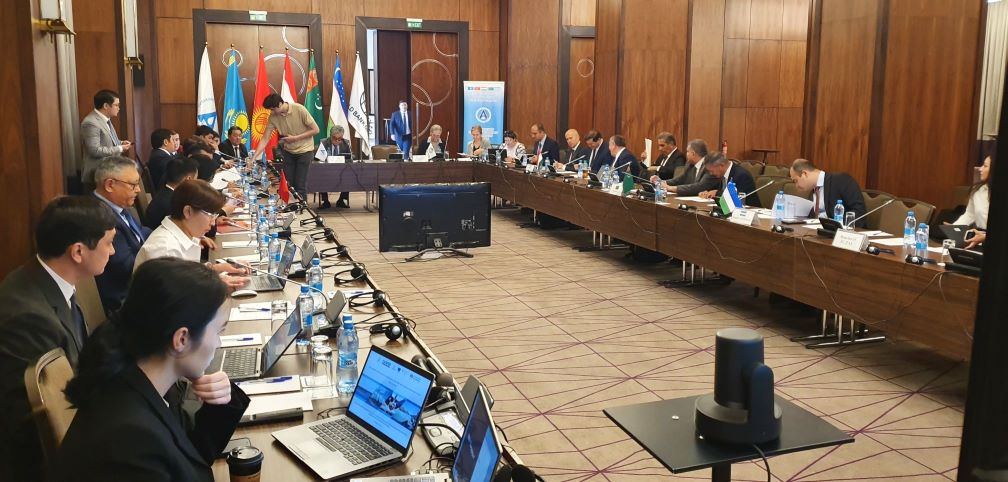Dushanbe, Tajikistan, 2–3 June 2025 – In accordance with the mandate of the Heads of State Founders of the International Fund for Saving the Aral Sea (IFAS), the 14th meeting of the Working Group on Improving the Organizational Structure and Legal Framework of IFAS was held in Dushanbe. The event was co-organized by the IFAS Executive Committee and the Central Asia Water and Energy Program (CAWEP) of the World Bank. More than 30 participants attended the meeting, including representatives of the environmental ministries and agencies of Central Asian countries, international organizations, technical experts, and development partners.
 Photo of the Meeting. Photocredit to SIC ICSD
Photo of the Meeting. Photocredit to SIC ICSD
The meeting was opened by Mr. Askhat Orazbay, Chair of the IFAS Executive Committee, who emphasized the importance of the current phase of the Fund’s institutional strengthening and expressed hope for achieving consensus on key decisions. Welcoming remarks were also delivered by Mr. Dmitry Petrin and Dr. Kristina Leb of the World Bank, who underlined that the ongoing work on enhancing coordination mechanisms within IFAS is instrumental in strengthening regional cooperation on water and energy resource management.
The meeting focused on the third phase of the improvement process, namely the preparation of recommendations for a revised IFAS organizational structure. This included proposed amendments to the statutes of IFAS commissions (water and energy), as well as discussions on the development of a coordination mechanism at the level of water and energy sector ministers. Special attention was given to international experience in the strengthening of river basin organizations (RBOs), with a view to applying relevant models in the Aral Sea Basin.
Representatives of the Scientific-Information Center of the Interstate Commission on Sustainable Development (SIC ICSD) actively contributed to the discussions by sharing expert insights on ecological sustainability and the integration of water-environmental considerations into the renewed IFAS structure. Particular emphasis was placed on the need to strengthen scientific and informational support for decision-making processes and ensure alignment with the priorities of the Regional Environmental Programme for Sustainable Development in Central Asia (REP4SD).
The meeting concluded with the adoption of the Final Document of the 14th Session and agreement on a roadmap outlining next steps and the timeline for implementation of the endorsed decisions.
The event supports the achievement of:
| Priority area No 6 of REP4SD dedicated to SDG 17: “Strengthen the means of implementation and revitalize the Global Partnership for Sustainable Development” |
| 6.3 Strengthening of legal, institutional and technical frameworks of the ICSD and its bodies to ensure the implementation of regional programmes and projects, organization of environmental monitoring in Central Asia, and cooperation with other regional and international organizations for the sustainable development of Central Asia. |



